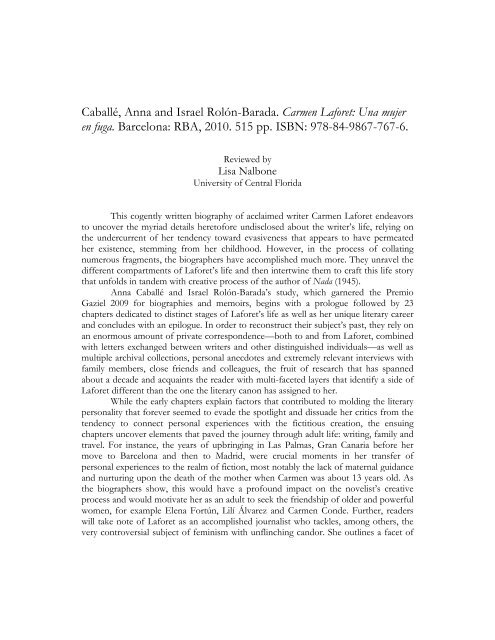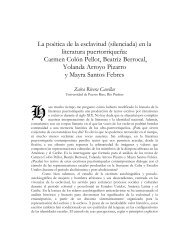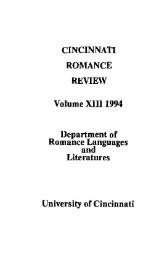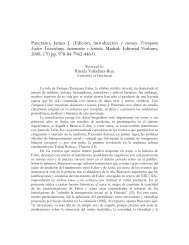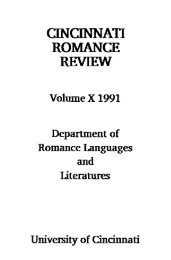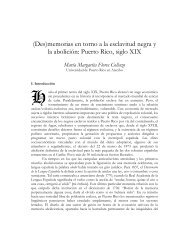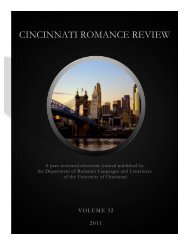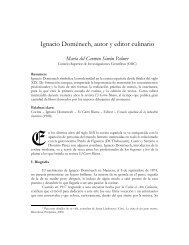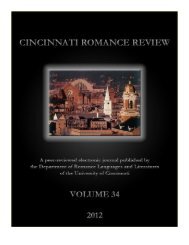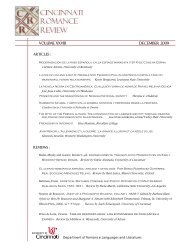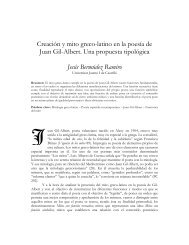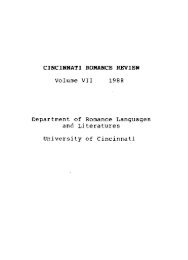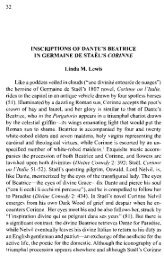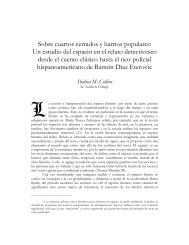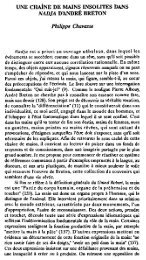Volume 29 - Cincinnati Romance Review
Volume 29 - Cincinnati Romance Review
Volume 29 - Cincinnati Romance Review
You also want an ePaper? Increase the reach of your titles
YUMPU automatically turns print PDFs into web optimized ePapers that Google loves.
Caballé, Anna and Israel Rolón-Barada. Carmen Laforet: Una mujer<br />
en fuga. Barcelona: RBA, 2010. 515 pp. ISBN: 978-84-9867-767-6.<br />
<strong>Review</strong>ed by<br />
Lisa Nalbone<br />
University of Central Florida<br />
This cogently written biography of acclaimed writer Carmen Laforet endeavors<br />
to uncover the myriad details heretofore undisclosed about the writer’s life, relying on<br />
the undercurrent of her tendency toward evasiveness that appears to have permeated<br />
her existence, stemming from her childhood. However, in the process of collating<br />
numerous fragments, the biographers have accomplished much more. They unravel the<br />
different compartments of Laforet’s life and then intertwine them to craft this life story<br />
that unfolds in tandem with creative process of the author of Nada (1945).<br />
Anna Caballé and Israel Rolón-Barada’s study, which garnered the Premio<br />
Gaziel 2009 for biographies and memoirs, begins with a prologue followed by 23<br />
chapters dedicated to distinct stages of Laforet’s life as well as her unique literary career<br />
and concludes with an epilogue. In order to reconstruct their subject’s past, they rely on<br />
an enormous amount of private correspondence—both to and from Laforet, combined<br />
with letters exchanged between writers and other distinguished individuals—as well as<br />
multiple archival collections, personal anecdotes and extremely relevant interviews with<br />
family members, close friends and colleagues, the fruit of research that has spanned<br />
about a decade and acquaints the reader with multi-faceted layers that identify a side of<br />
Laforet different than the one the literary canon has assigned to her.<br />
While the early chapters explain factors that contributed to molding the literary<br />
personality that forever seemed to evade the spotlight and dissuade her critics from the<br />
tendency to connect personal experiences with the fictitious creation, the ensuing<br />
chapters uncover elements that paved the journey through adult life: writing, family and<br />
travel. For instance, the years of upbringing in Las Palmas, Gran Canaria before her<br />
move to Barcelona and then to Madrid, were crucial moments in her transfer of<br />
personal experiences to the realm of fiction, most notably the lack of maternal guidance<br />
and nurturing upon the death of the mother when Carmen was about 13 years old. As<br />
the biographers show, this would have a profound impact on the novelist’s creative<br />
process and would motivate her as an adult to seek the friendship of older and powerful<br />
women, for example Elena Fortún, Lilí Álvarez and Carmen Conde. Further, readers<br />
will take note of Laforet as an accomplished journalist who tackles, among others, the<br />
very controversial subject of feminism with unflinching candor. She outlines a facet of


